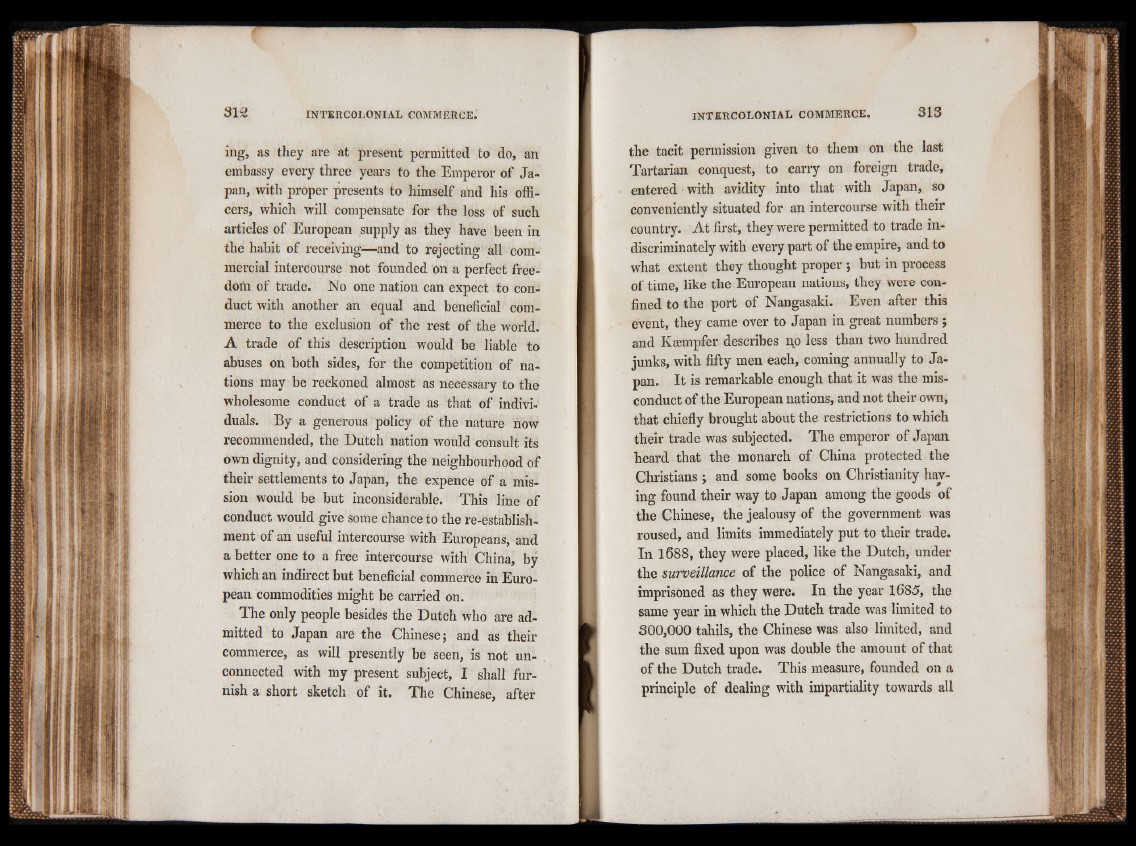
ing, as they are at present permitted to do, an
embassy every three years to the Emperor of Japan,
with proper presents to himself and his officers,
which will compensate for the loss of such
articles of European supply as they have been in
the habit of receiving—and to rejecting all commercial
intercourse not founded on a perfect freedom
of trade. No one nation can expect to conduct
with another an equal and beneficial commerce
to the exclusion of the rest of the world.
A trade of this description would be liable to
abuses on both sides, for the competition of nations
may be reckoned almost as necessary to the
wholesome conduct of a trade as that of individuals.
By a generous policy of the nature now
recommended, the Dutch nation would consult its
own dignity, and considering the neighbourhood of
their settlements to Japan, the expence of a mission
would be but inconsiderable. This line of
conduct would give some chance to the re-establishment
of an useful intercourse with Europeans, and
a better one to a free intercourse with China, by
which an indirect but beneficial commerce in European
commodities might be carried on.
The only people besides the Dutch who are admitted
to Japan are the Chinese j and as their
commerce, as will presently be seen, is not unconnected
with my present subject, I shall furnish
a short sketch of it. The Chinese, after
the tacit permission given to them on the last
Tartarian conquest, to carry on foreign trade,
entered with avidity into that with Japan, so
conveniently situated for an intercourse with their
country. At first, they were permitted to trade indiscriminately
with every part of the empire, and to
what extent they thought proper ; but in process
of time, like the European nations, they were confined
to the port of Nangasaki. Even after this
event, they came over to Japan in great numbers ;
and Ksempfer describes no less than two hundred
junks, with fifty men each, coming annually to Japan.
It is remarkable enough that it was the misconduct
of the European nations, and not their own,
that chiefly brought about the restrictions to which
their trade was subjected. The emperor of Japan
heard that the monarch of China protected the
Christians ; and some books on Christianity having
found their way to Japan among the goods of
the Chinese, the jealousy of the government was
roused, and limits immediately put to their trade.
In 1688, they were placed, like the Dutch, under
the surveillance of the police of Nangasaki, and
imprisoned as they were. In the year 1685, the
same year in which the Dutch trade was limited to
300,000 tahils, the Chinese Was also limited, and
the sum fixed upon was double the amount of that
of the Dutch trade. This measure, founded on a
principle of dealing with impartiality towards all